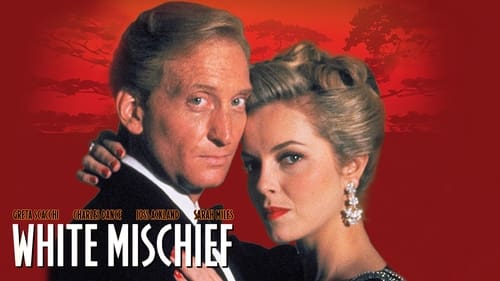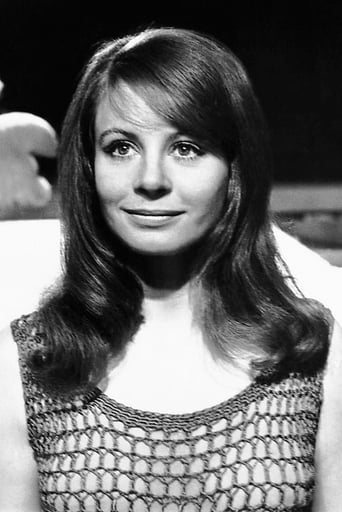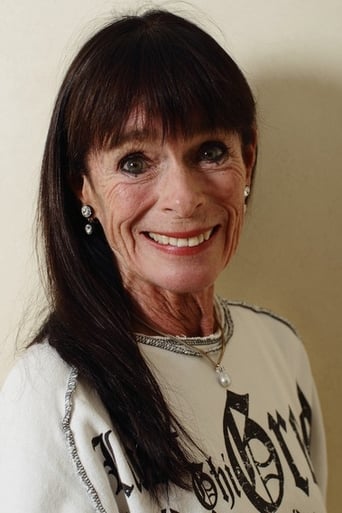StunnaKrypto
Self-important, over-dramatic, uninspired.
Dotsthavesp
I wanted to but couldn't!
Spoonatects
Am i the only one who thinks........Average?
Micah Lloyd
Excellent characters with emotional depth. My wife, daughter and granddaughter all enjoyed it...and me, too! Very good movie! You won't be disappointed.
dougdoepke
Seldom has social rot been more beautifully photographed than here. It's 1940. Bombs are raining down on London, soldiers are dying across Europe, Hitler is on the rise, yet not a drop of alcohol is being spilled by the rich and idle colonialists of British east Africa. Time is spent drinking and gossiping, drinking and swapping mates, drinking and dancing, and drinking and cross-dressing. It's all really rather empty and boring, sort of a sub-Saharan "La Dolce Vita", summed up in the death-mask visage of the sumptuous Greta Scacchi. Once jealousy takes hold, it's fun to watch the emotions build and shake loose behind these perfectly mannered mannikins.Based on an actual murder case, the movie is salvaged from cliché by the elegantly understated style of the film-makers, who know how to both seduce and make a subtle point. Two scenes stay with me. A black man-servant sets up targets for practicing colonialists and narrowly escapes being shot in the process. The episode passes quickly, but it's evident the elitist whites take no notice of what almost happened -- a whole little world captured in one fleeting event. The other is the deathless and x-rated line -- "Oh my God! Not another f...king beautiful day." -- uttered by the super-jaded Sarah Miles as she surveys yet one more splendorous sunrise from the veranda of one of the film's many lush mansions. For contrast, there is John Hurt's scruffy and enigmatic "Gilbert", reputedly the richest man in Kenya, and a fascinating study in laconic reserve. What exactly is going on behind that wide- eyed stare and silent tongue -- envy? disgust? It's probably best that we never know. Anyway, this is an all-around first rate production that qualifies for permanent cult status and promises to remain with you long after the final scene has faded from view.
Robert J. Maxwell
Charles Dance plays the greedy, suave, lying cad. He's a marvelous actor. His features are handsome in an oddly distant way and his hooded eyes are the color of that watery blue you can sometimes see deep in the interior of glaciers. God, is he rotten. He was rotten in "China Moon," too, but in the less demanding part of a drunken wife beater in a trashy movie.The point of the story is made clear in the first few minutes. It's 1940 and London is being bombed. After a roll in the hay, rich Greta Scacchi and her paramour, rich Hugh Grant, must take shelter in the underground, and they are two lovely, fashionably groomed people, amid the sweaty crowd of mothers and children. The milieu doesn't stop them from making out. The simply ignore the misery around them.Scacchi is married to Joss Ackland, older, rich, and satisfied with only looking at his wife when she's naked. (She's magnificent, with or without clothes.) But he's in financial trouble. His vast country estate is in jeopardy and he takes his wife to Kenya to see to his far-flung cattle empire.Kenya, they find, is loaded with other rich white Englanders who pride themselves on the produce they ship to England during the time of her troubles. The fact that their patriotism enables them to take baths in pound notes doesn't occur to them.What does occur to them is to get laid as frequently as possible and with diverse partners. Charles Dance, the cad, quickly seduces the stunning Scacchi and they exchange vows of love. Everyone in "the colony" knows all about it. Dance does everything but roger her on the pool table at noon. But does Dance really mean it? He's been married twice before, both times to rich women, and shrugged them off. Now he seems intent on winning Scacchi and her substantial divorce agreement away from Ackland. Ackland, now humiliated and feeling Scacchi's increasing estrangement, hints that maybe he won't honor the pre-nup that assured her of a lifetime income. Clouds of antipathy darken the savannah. The cattle grow restless.If Dance is a suave cad, we can't be sure about Scacchi either. As they lie in bed, planning to run off together, she says, "But we haven't any money." "Well, there's my Army salary." And she turns from him to flick ashes from her cigarette and replies, "Yes," in the most unenthusiastic tones ever committed to celluloid.The photography, wardrobe, and make up are unimpeachable. It's a story about Africa that takes place more than seventy years ago and there isn't a lion in it. (We get a glimpse of someone's pet leopard.) No elephants. No native uprisings. Only a colony of rich dissolutes in the foreground and impassive black Africans serving drinks and holding spears, while someone goes mad and an empire dies.
Tim Johnson
As someone who loathes empires and imperialism, I find myself strangely drawn to the remains of the planet's last old fashioned empire (as opposed to the new model currently imperializing, I think I can use that word, the world). I have been fortunate to wander around the post-colonial British remains in Singapore and Malaysia back in the 70s before those remains were washed from the slates of those new states in Southeast Asia. Although that peek was small it was enough to stay in my memory and to light the fire of interest in further, particularly British, remnants of their recent colonial past.This interest (probably grounded in history and curiosity) led me to this movie and I was not disappointed. I thought the script, the acting, the direction and the cinematography were excellent. The actors were brilliantly cast so the entire assembly fell into their roles to the extent that I saw the group as believable, as if they had just left their first-class cabins on one of those beautiful old liners that were the life-blood of Britian's empire.I intend to begin collecting all the DVDs of this colonial period in English history, as seen from both the colonizers and their subjects. I suppose that living as I do in a colonized country, albeit one from under the mantel for many years, has sparked this interest. Of course, not being part of the higher class I must view the insights of White Mischief as a voyeur of the recent past. The movie provided an exceptional glimpse into this lost world and for that I must congratulate all concerned with its production.
George Parker
Many films, most rather bland by cinematic standards, have been made about the antics of idle rich Brits living abroad estranged from their homeland during the days of WWII. Though most such films have dealt with Italy's Tuscany area (specifically Lake Como), "White Mischief" is another such flick which slogs tediously through seemingly endless moments of uppercrusty decadence until finally and almost reluctantly getting around to...drum roll, please...the Murder! Telling a true story which is not even a footnote of a footnote in African history, this long on talent and short on story flick conjures up too little, too late. A mediocre watch at best which will be most appreciated by those into period dramas about Brits abroad.







